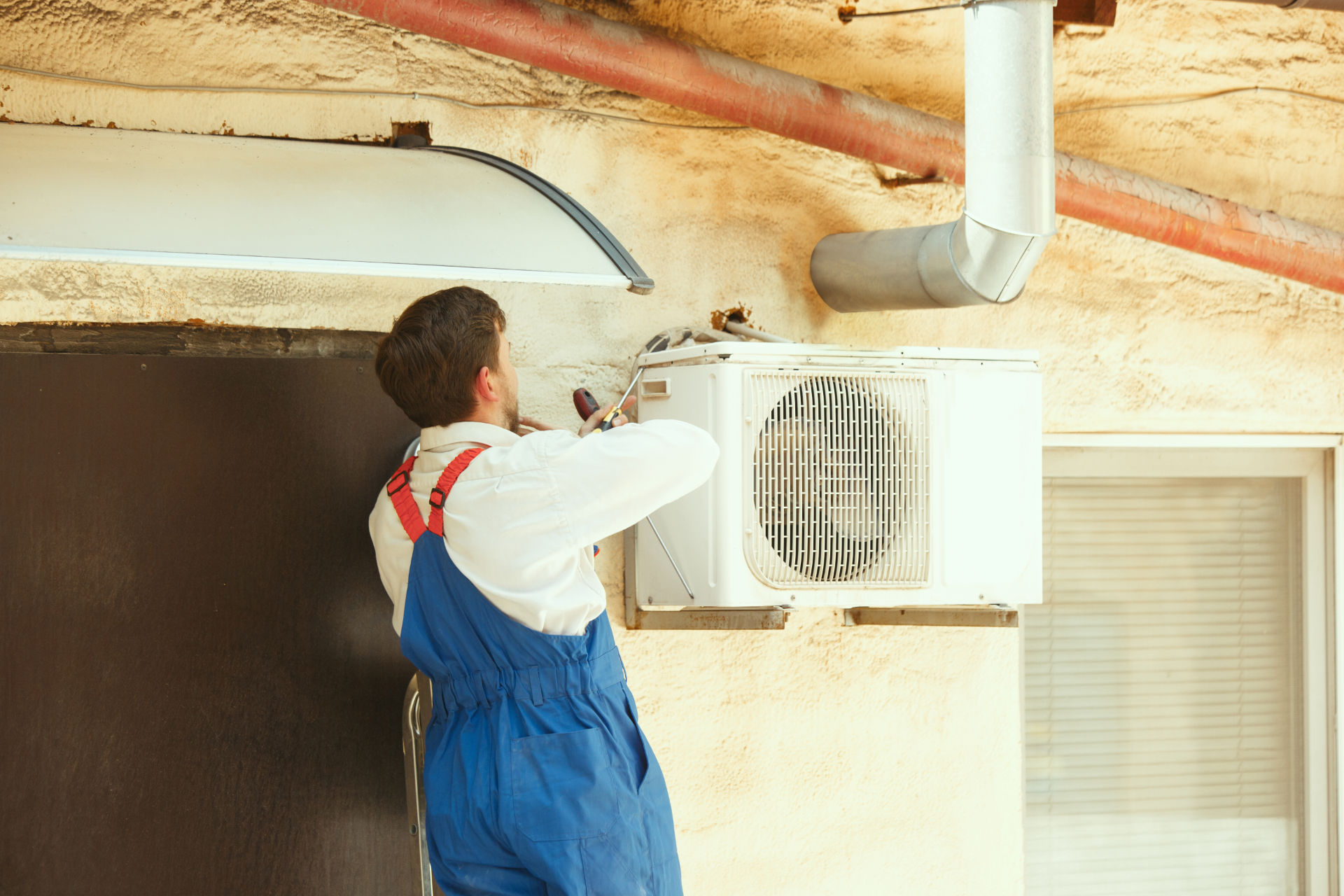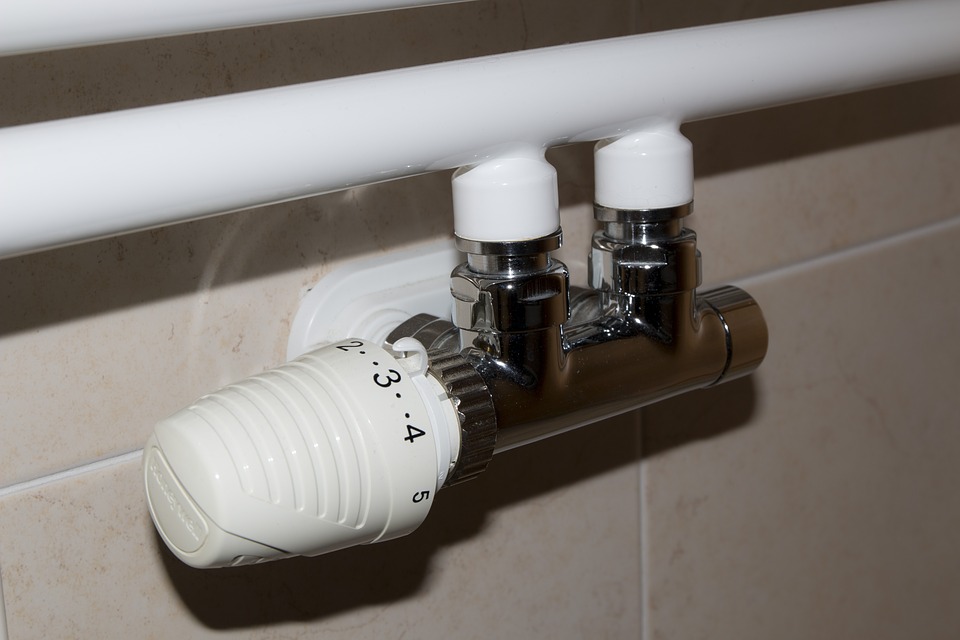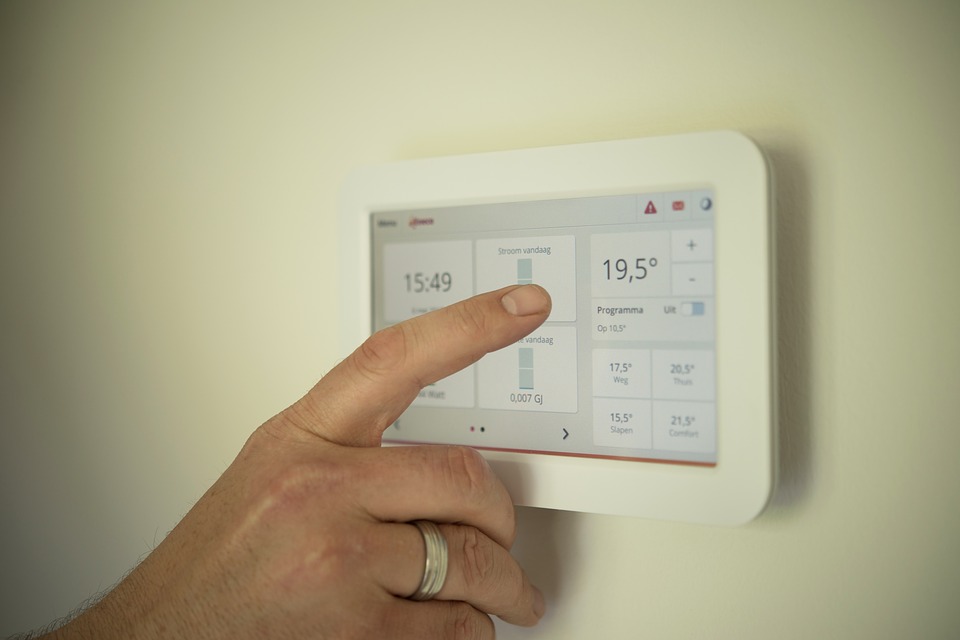 The Denver HVAC season is here, which means it’s time to get your HVAC ready for the heat. HVAC systems can be expensive to fix or replace if they break down during the summer months. Fortunately, there are a few tips that you can follow to help keep your HVAC in top shape this year and avoid those costly repairs!
The Denver HVAC season is here, which means it’s time to get your HVAC ready for the heat. HVAC systems can be expensive to fix or replace if they break down during the summer months. Fortunately, there are a few tips that you can follow to help keep your HVAC in top shape this year and avoid those costly repairs!
Keep Your Home Cool With Ceiling Fans And Open Windows
During summer days, HVAC systems are typically on and running at full throttle. If your HVAC system is working overtime to keep up with demand, it can lead to a higher electric bill than usual or even other problems for your HVAC unit. Turning off your HVAC during the day will help save you money in costly repairs from overworking of the HVAC system and lower bills!
Ceiling fans are a great option for summer days when HVAC systems are working overtime. Ceiling fans will help cool your home without turning on your HVAC system or opening up those hungry window units that suck out all of the heat from inside of your house! Insulate around pipes with insulation pads – Insulated pipe covers can prevent freezing water lines by keeping them at least four inches off any cold surface in winter and they also reduce how quickly hot water reaches room temperature in warmer months
Turn Your AC On & Off
Turning on your ac system in the morning when you leave for work will allow it to be cool by the time you come home. It’s also a good idea to turn your HVAC system off while you’re away from home during the day so that it can maintain its efficiency and reduce high energy use.
Turning on air conditioning in the morning before leaving for work, but keeping it off at night or when not around is one way of saving money. This allows your HV unit to get nice and cold by evening, which makes staying comfortable easier! You’ll also save money if you only turn HVAC systems on when needed instead of running them continuously as they won’t have to run constantly.
Get A Window Air Conditioner If You Have A Single Room That Needs Cooling
When there is only one room in the house that needs cooling, such as a bedroom or office space without HVAC, it is best to get an AC unit for just this room. Window units are more energy efficient than central air and have lower emissions per ton of refrigerant (EPA). An HVAC system will typically be able to cool down all the other spaces in your home by circulating cooled air through ducts. If you’re considering installing window ac units but don’t want to do any work yourself, make sure you hire HVAC contractors who specialize in installation work! If possible keep windows closed during hot days so your whole HVAC system can run efficiently. This also helps with preventing those pesky pollen particles from getting sucked into your HVAC.
Clean Out Your Vents Each Month
Cleaning out your vents covers is an important HVAC maintenance task. Clogging the vents will lead to inefficient cooling and heating, which can cost you more in both energy bills and HVAC repair costs! Wipe down all surfaces of your HVAC system with a damp rag or use a vacuum cleaner attachment often for optimal dust removal. You should also clean out your HVAC vent covers each month by unscrewing them (check that screws are tight) and wiping off any dirt or debris from inside each one before re-screwing it back into place.
Change Your HVAC Filter Monthly For Optimum Performance
Changing your HVAC filter is another HVAC maintenance task that is easy to overlook. However, dirt and debris in your filter can lead to decreased HVAC performance as well as higher energy bills! At the very least you should change your HVAC filters monthly; ideally they should be changed every three months or so depending on how often you use your air conditioning unit during seasons of high usage (such as summer). Lastly, it’s important to note that if there are any changes in the airflow patterns coming from outside vents then this indicates a clogged HVAC system requiring an inspection by a licensed professional who may need to dig into more complex HVAC issues such as ducts needing repair or replacement.
Check Your Thermostat’s Humidity
Checking your thermostats humidity level is important to your ac unit because it will help determine how often you should turn on your air conditioning. HVAC systems work best when they are around 40% humidity – higher than that and the system could overheat, lower and it may underperform due to low-humidity or high heat levels outside.
Buy An Air Conditioner With A High SEER Rating
Buying an HVAC system with a high SEER rating will ensure the HVAC system is most efficient and cost-effective. There are many HVAC companies that can help you determine which HVAC unit will work best for your needs and budget, so be sure to consider this before making any decisions. This indicates a clogged HVAC system requiring an inspection by a licensed professional who may need to dig into more complex HVAC issues such as ducts needing repair or replacement. Checking your thermostats humidity level is important to your ac unit because it will help determine how often you should turn on your air conditioning. HVAC systems work best when they are around 40% humidity.
Have Your HVAC System Serviced Annually By A Professional Technician
HVAC systems need to be cleaned and inspected regularly, this will help them run more efficiently.Hiring professional HVAC technicians for annual service is often a good idea because they have the knowledge required to keep your HVAC system running smoothly as well as offer potential savings in energy costs. When you’re looking for HVAC maintenance professionals, make sure that you find one who has been certified by either NADCA or ASHI (or both). This ensures that the individual has completed all of the necessary training standards before providing any services on behalf of their company.
Install An Air Conditioner Dehumidifier
Installing an air conditioner dehumidifier can help your HVAC system by removing some of the humidity from inside the house. This reduces strain on your HVAC unit, which in turn can extend its lifespan and increase efficiency. When you’re shopping for an air conditioner dehumidifier, make sure that it’s rated at least 6000-14000 BTUs per hour because more powerful models will be able to remove even more moisture than weaker ones. These units also use a lot less energy and don’t require any additional maintenance like filters or cleaning chemicals often do so they are ideal if you have pets or allergies!
 Your heating and cooling system require a lot of attention, which isn’t the case with other types of appliances. There are a few maintenance tasks you’ll want to perform if you want to keep your system running at peak performance. However, there are some tasks that an expert should only perform. It’s good to know what tasks you should do and when to do them because this is how you’ll extend your system’s life, conserve energy and prevent smaller problems from becoming bigger problems.
Your heating and cooling system require a lot of attention, which isn’t the case with other types of appliances. There are a few maintenance tasks you’ll want to perform if you want to keep your system running at peak performance. However, there are some tasks that an expert should only perform. It’s good to know what tasks you should do and when to do them because this is how you’ll extend your system’s life, conserve energy and prevent smaller problems from becoming bigger problems. A proper understanding of the moment when your furnace reaches the end of its lifespan can be complicated. On the other hand, the last thing you need is to discover this surprise in the middle of the winter, right when you need to keep your house warm. Once a furnace reaches ten years, or more, you should monitor it often to evaluate if your furnace is about to break and you need a new one.
A proper understanding of the moment when your furnace reaches the end of its lifespan can be complicated. On the other hand, the last thing you need is to discover this surprise in the middle of the winter, right when you need to keep your house warm. Once a furnace reaches ten years, or more, you should monitor it often to evaluate if your furnace is about to break and you need a new one.